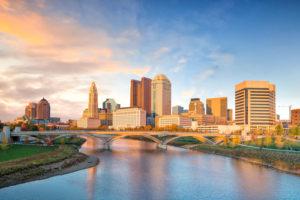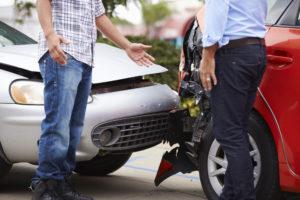

Columbus is one of just seven cities in the United States in the running for a $40 million grant to improve transportation. The U.S. Department of Transportation (USDOT) calls this initiative the “Smart City Challenge.” Now, each finalist city must submit a proposal regarding its plans to utilize the grant to improve transportation technology and efficiency in its area.
Columbus Plans To Be The First Smart City Challenge Winner
The Smart City Challenge began with a vision statement from city officials. The vision statement identified several goals:
- Connecting Columbus neighborhoods to each other and to Downtown
- Improving health and personal safety by completing streets to encourage more walking
- Ensuring residents have access to quality, affordable transportation options
- Building infrastructure to attract and retain jobs related to the industry
- Reduce consumption and emissions by pursuing alternative energy sources
- Better engage residents in awareness of transportation decisions and involve them in planning new projects
Once Columbus made it to the final round, U.S. Transportation Secretary Anthony Foxx visited Columbus on May 16 where city officials showed him how the grant could change the way people live, work, and play in Columbus.
Officials discussed the vision plan with Secretary Foxx and made a final application to the USDOT on May 24. Now the application is in the hands of USDOT officials, who expect to announce the winning city in June.
For a free legal consultation, call (614) 538-1116
Columbus Plans to Become a Smart City No Matter the Outcome
Local government and private sector companies have already rallied around the challenge, pledging an additional $90 million to supplement the USDOT grant. The goal is to make Columbus a hub for intelligent transportation systems and a model for other medium-sized cities to follow.
The city hopes to win another $10 million grant from Vulcan Inc. to help transportation officials look into the use of electric vehicles. The existing COTA buses will still play a central role in city transportation, with autonomous vehicles serving as secondary transportation to get bus riders closer to their destination.
The application also included ideas for a comprehensive transit pass that residents could use to pay for all forms of public transportation. The plan also discussed the city’s bike-share program, app-based car services, and the autonomous fleets. A new wireless Internet infrastructure at the Cleveland Avenue corridor will help facilitate real-time connectivity between all vehicles on the city’s transportation network.
Why the push for Smart Cities?
The USDOT is using the Smart City Challenge as a testing ground for new transit technologies. Some of the goals include improving access to affordable transportation for all citizens and reducing the risk of human error accidents. It is the hope of the officials that using autonomous vehicles and improving infrastructure for pedestrians and cyclists will reduce accidents and make sure residents get from Point A to Point B safe and sound.
To stay up to date on news affecting our city, check out our blog.
Call or text (614) 538-1116 or complete a Free Case Evaluation form








